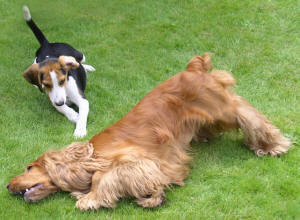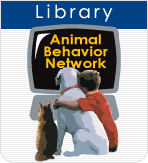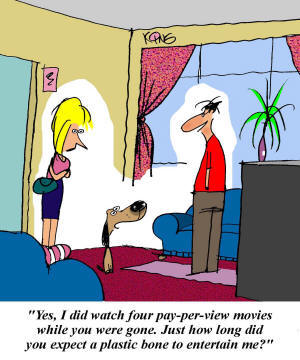|
Getting Started Week 46 - Party On!
Nature seems to insist on play as a requirement for healthy physical,
mental and social development of most, if not all,
 species. Individuals that do not play as youngsters may be severely compromised
as adults in emotional health and social skills. species. Individuals that do not play as youngsters may be severely compromised
as adults in emotional health and social skills.
Puppies learn from play how to act friendly and relaxed about other canines,
species, places, and objects. Even if the puppy has a dog at home,
isolation from other puppies as a youngster stints emotional and social
growth making it harder for the adult dog to mix with other unknown
canines. As a result the dog may show aggression or fear.
Play is good for both you and your puppy. It relieves stress and
adds enjoyment to the relationship. You can initiate play by imitating a canine
play bow and slapping the floor with your hands. Let the day's
tension go as you wiggle and giggle, and watch your puppy light up in response.
Lead gentle play by example and keep it toy focused. If your puppy can
handle it without play biting, add lots of dog pats and back rubs. Use toys, treats, and vocabulary to
create new games. Keep play light-hearted, fun, and interesting. Stop
the play session before your puppy shows declining interest.
Parenting Tips™ for your puppy
|
Error Free Puppy Raising™
- Click on Library Icon below to learn more:

Use Library
Icon
to
go to Library
|
 |
|